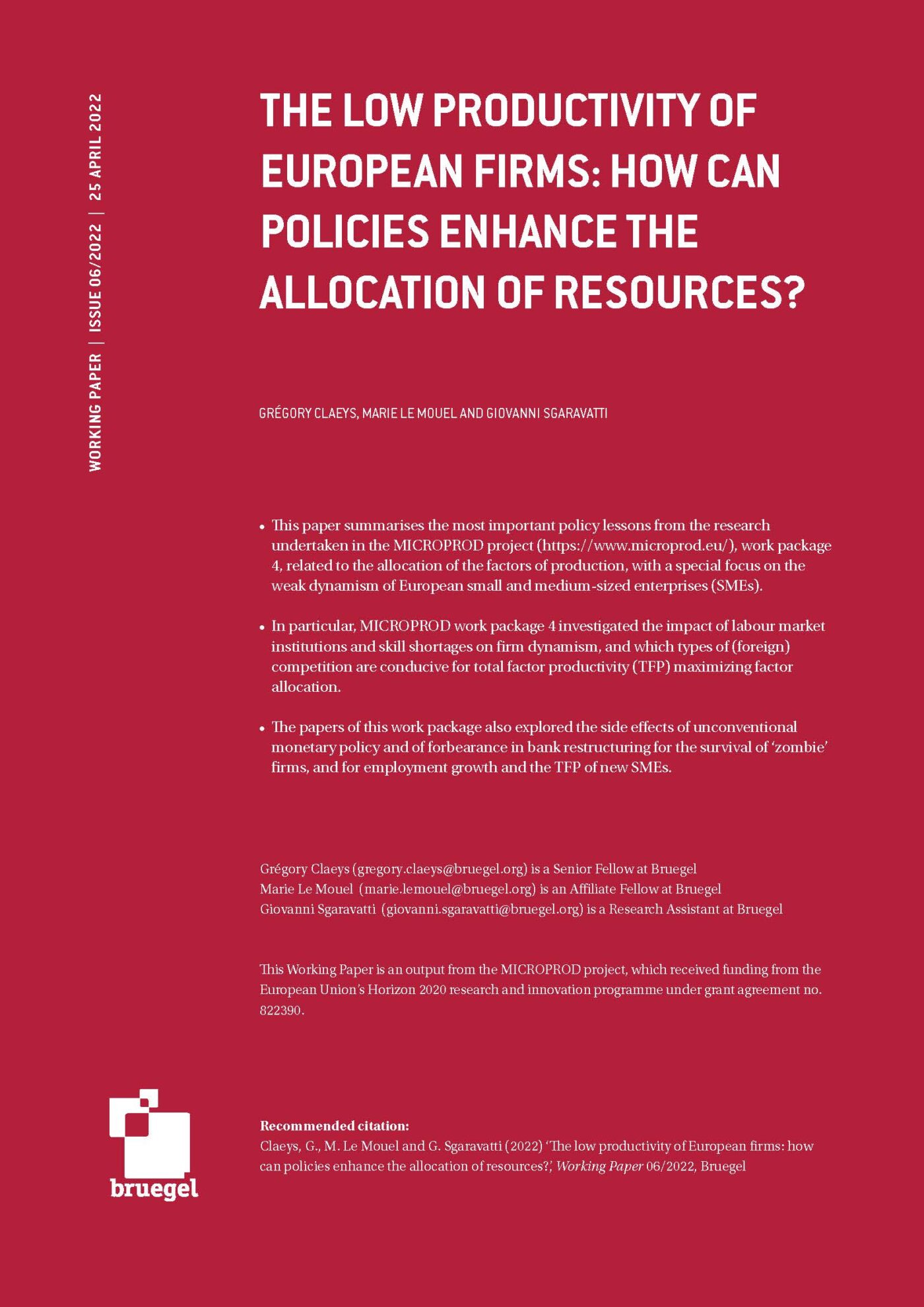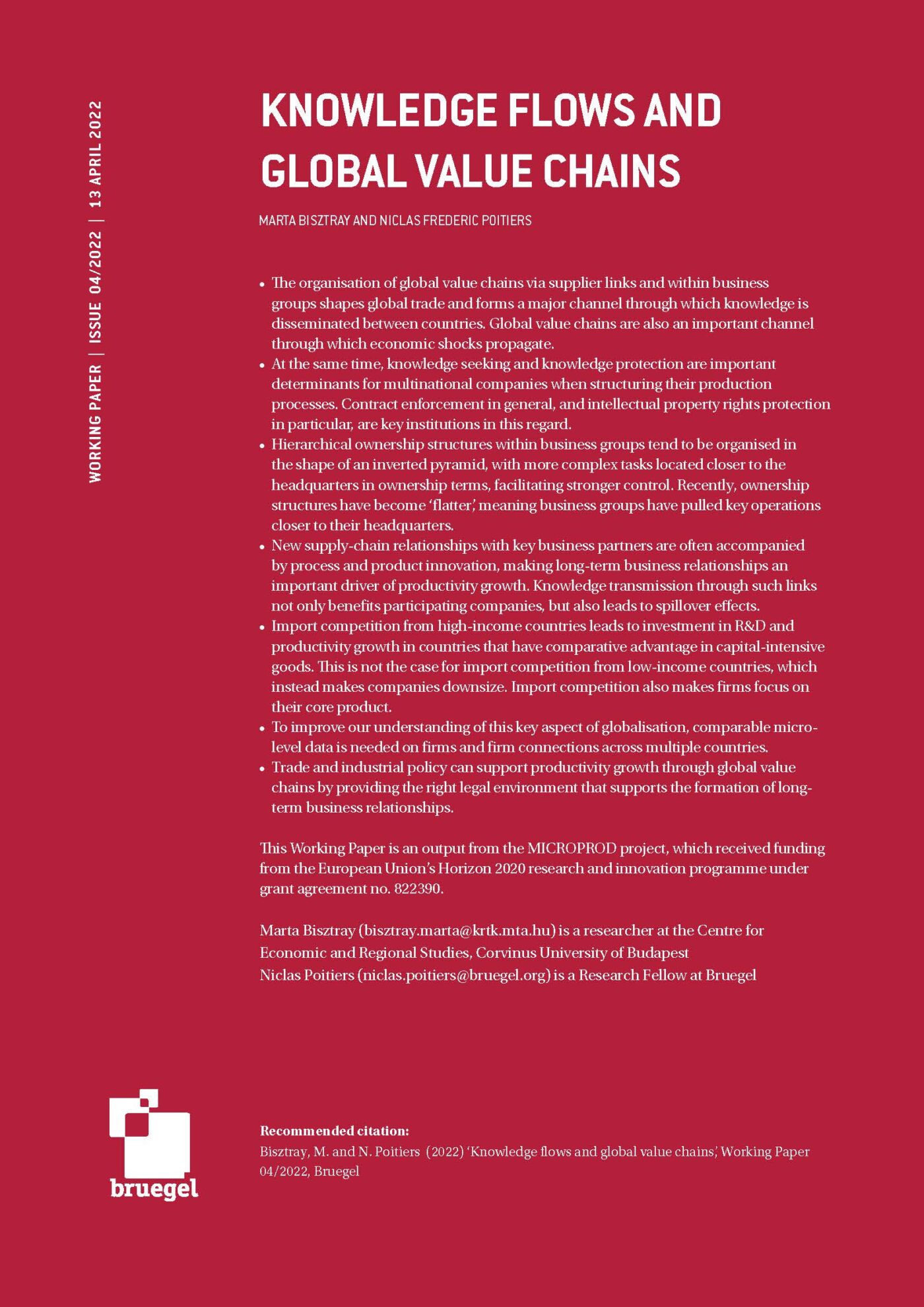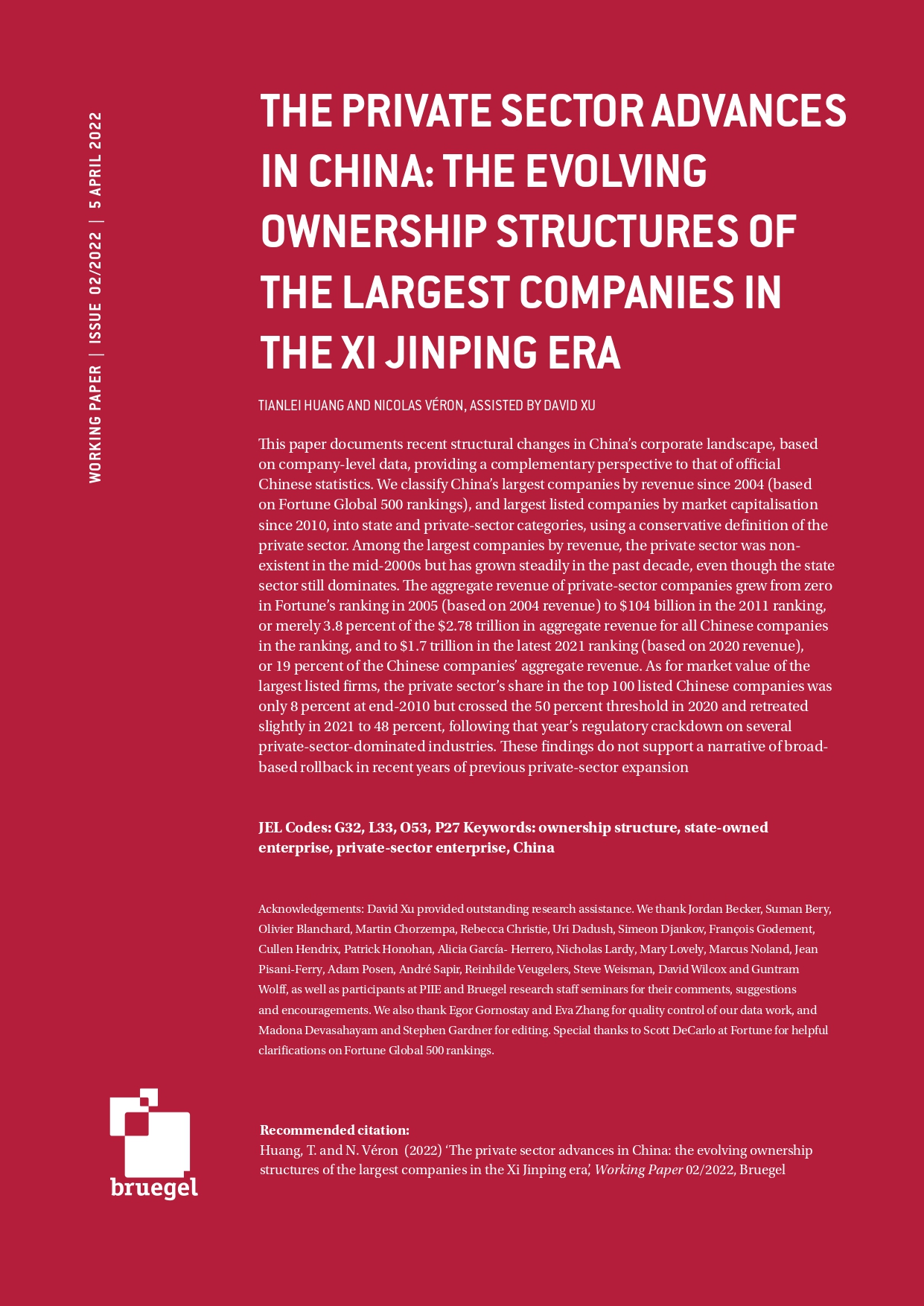Past Event
Removing Barriers to Venture Capital Investment in Europe: facilitating the growth of innovative internet and ICT firms
Financing innovative young firms is an increasing challenge in Europe. Data on venture capital investment in Europe consistently shows a significant gap in comparison to the U.S. In addition, the market in Europe is very fragmented. What can be done to remove the barriers to investment, particularly for firms in the fast-growing internet and ICT […]
Financing innovative young firms is an increasing challenge in Europe. Data on venture capital investment in Europe consistently shows a significant gap in comparison to the U.S. In addition, the market in Europe is very fragmented. What can be done to remove the barriers to investment, particularly for firms in the fast-growing internet and ICT sectors? This discussion looked into some of the possible explanations for the large differences in VC investment in the Europe and the U.S. and put forward suggestions for addressing some of the barriers including labor markets, exit markets, bankruptcy law, copyright, data protection and privacy law. New reports were presented (Nesta report and ECIPE report), highlighting the regulatory barriers facing venture capital firms interested in investing in Europe. This was followed by a policy panel to further discuss the findings and suggest next steps in terms of both policy and research.
Event materials
Event summary Event summary
Unchaining Investment: Barriers to US venture investment in UK Internet and digital businesses by Louise Marston, Liam Collins, Alberto Bravo-Biosca, Henry Lane –
EU Policies on Online Entrepreneurship: Conversations with US Venture Capitalists by Fredrik Erixon –
Speakers
Overview and presentation of research
- Karen Wilson, Visiting Fellow, Bruegel
- Louise Marston, Head of Innovation and Economic Growth, NESTA
- Fredrik Erixon, Director of the European Centre for International Political Economy (ECIPE)
Policy panel
- Philippe De Backer, Member of the European Parliament
- Anne Bucher, Director for Structural Reforms and Competitiveness, DG Economic and Financial Affairs, European Commission
- Dr. Alexander von Gabain, Chairman of the Governing Board of the European Institute of Innovation and Technology (EIT)
- Thibault Kleiner, member of the cabinet, VP Neelie Kroes, Digital Agenda, European Commission
Moderation
- Reinhilde Veugelers, Senior Fellow, Bruegel
- Karen Wilson, Visiting Fellow, Bruegel
About the speakers
Louise Marston joined NESTA in October 2009 and is now Head of Innovation and Economic Growth. She has authored recent NESTA reports on the semiconductor cluster in the South West and the need for collaboration in the biomedical industry. Louise also co-ordinates the Hot Topics series of events on emerging technologies. Prior to joining NESTA, Louise was an Investment Analyst at an active venture investment firm Blenheim Chalcot, where she supported the investment portfolio and led on strategic projects. Louise has previously worked as a Project Manager and Business Analyst for IMS Health, a pharmaceutical data company, and has a background in software development and services. Louise has a MA in Natural Sciences (Neuroscience) from the University of Cambridge and a Masters in Computer Science from UCL.
Fredrik Erixon is a Swedish economist and writer. He is the Director of the European Centre for International Political Economy (ECIPE), a world-economy think tank based in Brussels he co-founded in 2006 together with Professor Razeen Sally. Since then Erixon has led the development of ECIPE to become one of Brussels leading research-based institutes. Fredrik Erixon is the author of several books and studies in the fields of international economics, economic policy, and regulatory affairs (welfare reforms, healthcare competition policy, et cetera). He has also advised several governments in Europe and the rest of the world, and is a frequent speaker at conferences.Prior to starting ECIPE, Erixon was an Adviser to the British government and the Chief Economist of Timbro, a Swedish think tank. He started his career as an economist in the Prime Ministers Office in Sweden and has later worked as an economist at the World Bank and for JP Morgan as an emerging market analyst. Erixon was educated at the University of Oxford, London School of Economics and Uppsala University.
Philippe De Backer is a Member of the European Parliament and holds a PhD in biotechnology from Ghent University and an MBA from Solvay Business School. Before joining the European Parliament, Philippe worked as Technology Transfer Officer at CRP-Santé and as analyst at Vesalius Biocapital, a Luxembourg based venture capital firm specialised in the life-sciences. He has an expertise in the valorisation of IP developed by public research institutes and setting-up early ventures in the life-sciences. Philippe is currently a Member of the European Parliament where he is a full member of the Transport and Tourism Committee. He is a substitute Member on the Economy and Monetary Affairs Committee, as well as the Employment and Social Affairs Committee. His main interests lie in the field of transport infrastructure and functioning of logistics markets, the regulation of financial institutions and innovation policy.
Anne Bucher, is Director for Structural Reforms and Competitiveness in DG Economic and Financial Affairs at the European Commission, a position she has held since March 2011. She has been in the European Commission since 1983. Trained as an economist and statistician in Paris (PHD in macroeconomics – Ecole des Hautes Etudes and master degree from Ecole Nationale de Statistique et d’Administration Economique), Anne Bucher has worked in various fields of European policies: macroeconomic forecast and models, structural funds, evaluation of employment policies, enlargement, development aid, information society strategy and economic analysis of EU tax policy. She has held various management positions, including administrative management positions for HR and budget management.
Dr. Alexander von Gabain, is Chairman of the Governing Board of the European Institute of Innovation and Technology (EIT). He is also co-founder, CSO and Member of the Management Board of Intercell AG, Professor of Microbiology at Max Perutz Laboratories in Vienna and foreign adjunct professor at Karolinska Institute, Stockholm. Dr. Von Gabain obtained his PhD in Genetics at the University of Heidelberg and a Postdoctorate at Stanford University. In the 1980s and 1990s he was a Professor at the University of Umeå and at the Karolinska Institute, Sweden and advisor to pharmaceutical companies. During 1992-1998, he was Chair of Microbiology at the University of Vienna at the Vienna Biocenter Campus, Austria. In 1998 he co-founded the biotech company Intercell AG and served as CEO there until 2005. He is a member of several professional organizations and serves in the Supervisory Boards of biotech enterprises.
Thibaut Kleiner is a member of cabinet of Neelie Kroes, where he is in charge of Internet policies at large (Net futures, media & data, trust and security, Internet governance) and robotics. He has worked for the European Commission since 2001, occupying a number of positions, notably in the field of competition policy, where he was head of unit in charge of coordination, and member of cabinet of Neelie Kroes in her previous mandate, where he notably supervised state aid (including during the banking crisis). An economist by training, he holds a Master from HEC Paris and a PhD from the London School of Economics.
Practical details
- Venue: Bruegel, Rue de la Charité 33, 1210 Bruxelles
- Time: 25 June 2013, 12:30 – 14:30 (A light lunch will be served before the event at 12.00)
- Contact: Matilda Sevón, Events Coordinator – matilda.sevon[at]bruegel.org











